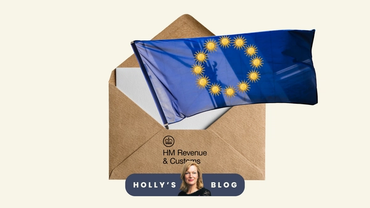Spring Statement: £14bn Cuts Restore UK Economic Headroom
By Boring Money
26 Mar, 2025
The Spring Statement was meant to be a “thin book" of new policies with a "light scorecard" of measures. Instead, it became a test of the Chancellor’s credibility and prompted plenty of hand-wringing about the state of the UK economy. The key message? The situation may not be quite as bad as feared.

Why the fuss? The Chancellor had made a virtue of only having one significant fiscal event per year. The idea was to promote long-term decision-making. The problem is that circumstances get in the way. In this case, international factors have muddled the outlook for the UK economy, raising borrowing costs and pushing the forecasts out of whack.
Just how out of whack wasn’t clear until the OBR revealed its forecasts. The OBR cut economic growth from 2% to 1%, suggesting the near-£10bn fiscal ‘headroom’ the Chancellor had built into her last budget had turned into a £4bn deficit. That left her with £14bn to find and three unpalatable choices: to raise taxes, to cut spending or to increase borrowing.
The Chancellor had ruled out raising taxes ahead of the Statement. After a chunky tax rise in the October budget, there were fears of a significant backlash from business and wealthy individuals should taxes rise further. There was a risk that the tax take could fall if taxes were increased still further. Fears of cuts to the Cash ISA allowance, pension tax credits or extending the freeze on Income Tax bands proved unfounded.
The Chancellor did however announce that the government would be looking at options to reform ISAs, to get the balance right between cash and equities.
ISAs were launched 25 years ago, but it’s only in the last 10 years that savers have been able to put the full allowance into cash. There’s currently approximately £300 billion in cash ISAs, and it is important that consumers have a safety net of cash savings. However, some of those who have money in cash could do better by investing in stocks and shares.
Extra borrowing?
The Chancellor also ruled out further borrowing. She said her fiscal rules were "non-negotiable". These rules require her to balance the UK’s annual budget by 2029-30, so day-to-day spending is met by tax receipts. She also wants to ensure that net financial debt falls by the end of the forecast period to 2029-30.
Her reticence is understandable. The UK currently spends more than £100bn on debt interest. That’s more than many of the major departments, such as schools and police.[1] The debt market is fragile and UK gilt yields have already been rising. Any significant rise in gilt yields would push UK borrowing costs even higher and make a precarious situation even worse.
With this in mind, spending cuts were really her only option, no matter how much it irritated other members of her party. Even these cuts did not prove straightforward. She thought that welfare cuts would save another £5bn, but the OBR slapped this figure down to £3.4bn.
The main measures
The Chancellor believes the measures announced today give her an additional £14bn, addressing the deficit and restoring the £10bn of extra headroom she had in October. According to the latest projections, the UK economy will move from a deficit of £36.1bn in 2025-26 to a surplus of £9.9bn by 2029-30. This surplus comes two years ahead of schedule.
The main benefit cuts are to Universal Credit. The government has curbed a rise in the standard allowance for 6.5 million people. It will now be £1 a week lower than previously billed. The health element of Universal Credit (which reflects a limited capability to work) will be halved for new claimants to £50 a week in 2026-27, then frozen. Existing claimants will see their entitlement frozen at £97 a week until 2029-30.
As previously announced, higher defence spending will be paid for by reducing the overseas aid budget to 0.3% of GDP. The government will spend 2.5% of GDP on defence by 2027, and the Ministry of Defence will receive a £2.2bn funding boost from next year.
The Chancellor will also be reducing spending through cuts to the Civil Service and a change in the eligibility criteria for Personal Independence Payments. These had been pre-announced ahead of the Spring Statement. The government also has an ambitious tax avoidance agenda, designed to save around £7.5bn.
Good news
There were a few nuggets of good news in the Statement. The first is that real household disposable income will grow at almost twice the rate expected in the autumn. That could leave the average household around £500 better off from 2026. This has been verified by the OBR. Although the OBR forecast weaker growth in 2025, it revised its expectations for 2026 and beyond higher by 0.1% in 2026, 0.3% in 2027 and 0.2% in 2028.
Investment implications
The success or otherwise of the Spring Statement will be largely measured by the gilt market. If borrowing costs fall, the Chancellor will breathe a sigh of relief. Matthew Amis, investment director at Aberdeen, believes the budget will be welcome:
OBR forecasts show GDP growth in the medium term slightly higher and inflation slightly lower. But more importantly, the amount of gilts issued this year is well below market consensus. To add to the gilt-positive tone the reduction in long-maturity gilts has far exceeded market expectations. This should give the much-beleaguered gilt market the opportunity to perform in the short term.
There were also some positives for specific sectors. The building and construction sector should welcome ambitious targets laid out by the government for housebuilding.
The announcement of £2 billion in grant funding to build up to 18,000 new social and affordable homes was welcome. The Government's commitment to building 1.5 million new homes was a key manifesto mission. While this target is highly ambitious, the actions taken so far suggest it is not an idle pre-election pledge. We’re pleased that two long-standing bottlenecks - planning and a shortage of skilled labour - are now being addressed.
Saker Nusseibeh, CEO of Federated Hermes Limited, agrees that there were positives for business in the budget and that there are signs it could boost UK growth:
The Chancellor reinforced the shift away from red tape, embracing simplicity and a pragmatic approach to regulation in order to progress her ‘serious plan’ for growth in the UK’s economy in a changing world. The spotlight in her speech on the Government’s continued commitment to investing alongside private capital, as well as increasing funding for jobs in the construction sector and planning reforms boosting housebuilding will be welcomed.
Bill Casey, Equities Portfolio Manager at Schroders, says that this budget was important for the trajectory of UK stocks, especially those that are domestically focused and mid-caps. These have seen some recovery since the start of the year, but self-sustaining momentum remains elusive.
It all comes back to interest rates and growth, where lower rates are needed to reignite the investment cycle. Lower rates are also key to improving fiscal headroom, which has eroded since October. Options are now limited and having seen the impact that shrinking the state in the US is having on the cost of US debt, the UK is taking a leaf out of the DOGE. Lowering the cost of UK debt compared to countries like Germany will be key in enabling animal spirits both in the real economy and the stock market.
Part of the problem for the UK economy and stock market has been a persistent lack of confidence. This Statement does not suggest that the UK economy is back to the races, but it shows that it is not as bad as some have suggested. That may be enough to galvanise interest in the unloved UK market.
---
Post a comment:
This is an open discussion and does not represent the views of Boring Money. We want our communities to be welcoming and helpful. Spam, personal attacks and offensive language will not be tolerated. Posts may be deleted and repeat offenders blocked at our discretion.






